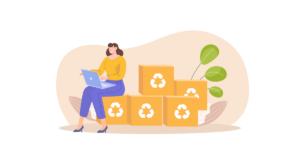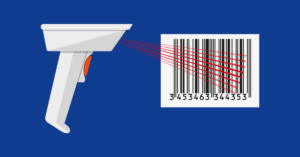I get very excited during International Women’s day because it allows me to reflect on the power of African women — especially in my life — and their impact on the African continent. So, as the curtains close on the month of March, I draw strength from the impact of great women like my tenacious mother and her two amazing sisters, Aunty Lizzy and Aunty Maggie, who inspire me. Growing up around them in Nigeria, I loved their different yet vibrant personalities: my mom — the caring but serious planner, Aunty Lizzy — the cool aunt and advisor-in-chief, and Aunty Maggie — the comedian. I admired their determination through adversity, their sisterhood bond, and their professional achievements.
My mom became a Medical Doctor and Professor in Public Health — teaching the next generation of Medical Doctors in West Africa. Aunty Lizzy utilized her success as a Lawyer to provide full scholarships to indigent Nigerian youths, and Aunty Maggie expanded people’s access to affordable drugs in West and East Africa. But these women are not the only ones that inspire me. Other great African women from the great Queen Amina to the revolutionary Winnie Mandela, Arunma Oteh, Dr. Ngozi Okonjo-Iweala, presidents Joyce Banda (Malawi) and Ellen Johnson Sirleaf (Liberia), among others. However, the focus is not about history but the future — the next generation of African women who own women-led businesses. I believe that the future of Africa can be shaped by us (women) and everyone needs to provide the support women require to drive a major impact on the continent.
I have a positive outlook on Africa’s economy for three reasons: Africa’s median population, the strong interest of women in entrepreneurship, and the stronger financial performance of businesses with female leaders. According to the Gates Foundation, Africa has the youngest population in the world. This could be advantageous if the continent invests in its youth and builds a highly skilled workforce. However, the status quo is this: underutilization of the continent’s talent — especially in terms of engaging women. Studies have shown that more African women than men are interested in running a business and that businesses with more female leaders perform financially better than those without. Yet only 5% of African private companies are women-led businesses and those outlier countries with high participation of women such as Ghana is driven by the need to augment household income — these women get into business to meet a need.
Despite the ability of African women to lead profitable businesses, it is unfortunate that the continent has not done enough to harness the potential of women as a catalyst to propel economic growth. What is resulting in this gap between interest and execution for us women? How do we harness this interest of women to launch the next big business in Africa?
Harnessing female interest in entrepreneurship in Africa will require a radical approach to providing access to training, capital, and peer-to-peer networks. Through my work at Vencru, I have been fortunate to connect with hundreds of African women, from fashion designers hoping to bring Aso Oke (a Nigerian fabric) to the global stage to women seeking to scale their bakery from their home kitchen to a mega factory. Vencru is a mobile app that helps businesses track their transactions and profits, build client relationships, and manage inventory. Working with clients, I have seen firsthand that we need to approach these challenges in a different way, otherwise the outcomes would not change.
Everyone talks about business training — and I cannot agree anymore, we need training — but without the right kind of training, at the right time and level of understanding, the outcomes remain the same. Using work like terms like tracking profit and loss sheets or accounts accrual will not get us there — Lord knows before Wharton, I only knew these words from sitting in countless meetings. Throwing out words like “value proposition”, “brand strategy”, or “competitive advantage” without the ability to relate these terms to everyday examples is futile. We must get to a point where we can translate business acumen to a simple language that is accessible to an average businesswoman.
Further, although we must acknowledge a general challenge is lack of access to capital, some financial institutions, foundations, venture capitalists, and government agencies are beginning to provide access to capital at different levels. However, they all require some form of collateral or financial record. In Africa, most women do not have access to collateral like land or houses to place to access affordable loans. Thus, the pertinence of keeping good financial records bigger for women-led businesses, in order to access loans at lower rates. But to get there, again, we need the proper training not complicated spreadsheets or formula-filled workshops that complicate the process of recording inflows and outflows of cash in a business. Rather we need solutions that help women keep track of transactions the same way they upload a post on Instagram for their business. This way they can simply download their records for evaluation by banks and other private lenders. In addition, tailored training must be developed to incentivize business women to keep a record of transactions, so that they can qualify for cheaper loans.
African women also need access to a peer-to-peer support network. Getting access to high-profile businesswomen (and men) is good but peer-to-peer communities that share insights and know-how about everyday challenges — from deciding to launch a business to scaling globally — is better. For example, as an event planner having a support group across Africa or in your local community with women in the event planning business to find people to collaborate with would arguably do better for your business. Such a businesswoman can discuss prospects of the industry and get advice on everyday challenges. However, some common networking mistakes I have seen include spending time trying to meet high-profile individuals when such individual cannot provide solutions to your immediate needs because they are 20 steps ahead of your business. Put simply, accomplished business people are, often, in a different stage and no longer face the same business challenges you face. Thus, African women need access to a “circle of support” that is within or a few steps ahead of their business, so they can get meaningful support and feedback.
Having said that, it is important to acknowledge that sharing with colleagues may sometimes result in spilling business secrets. But I must also note that I disagree with that notion. As a business owner, if you are sure about the value you provide to your customers, what sets your business apart from your competitors, and why your past customers return, then you do not need to worry about helping a woman in a related business. In addition, I have seen business support networks at work on WhatsApp groups with members in similar industries, and the results are substantial.
To paraphrase a quote by former Accenture boss Terry Neill, empowerment is not what we do to or for people, but the impediments we take away to enable folks to empower themselves. In the same vein, if we could design the right training, provide access to capital, and build meaningful networks, we would have taken away the impediments that hold African businesswomen back. Then, we will start to see the impact of women-led businesses on the growth and development of African economies. We would have changed the African woman from a perennially “untapped resources” to an economic catalyst.
Finally, one thing is certain, the strength of the African woman is unquestionable. We have an undoubtedly strong desire to better not only our families but our communities and countries. Thus, if we could scale her ability to transform her little savings and desire into relevant businesses, we could unleash new economic possibilities. Again, I believe that if we work on solving these challenges and more, Africa would not be referred to “the next frontier” but will become the “go-to continent” in our lifetime.
*This Vencru article was first published on ThisDay Newspaper for International Women’s day







